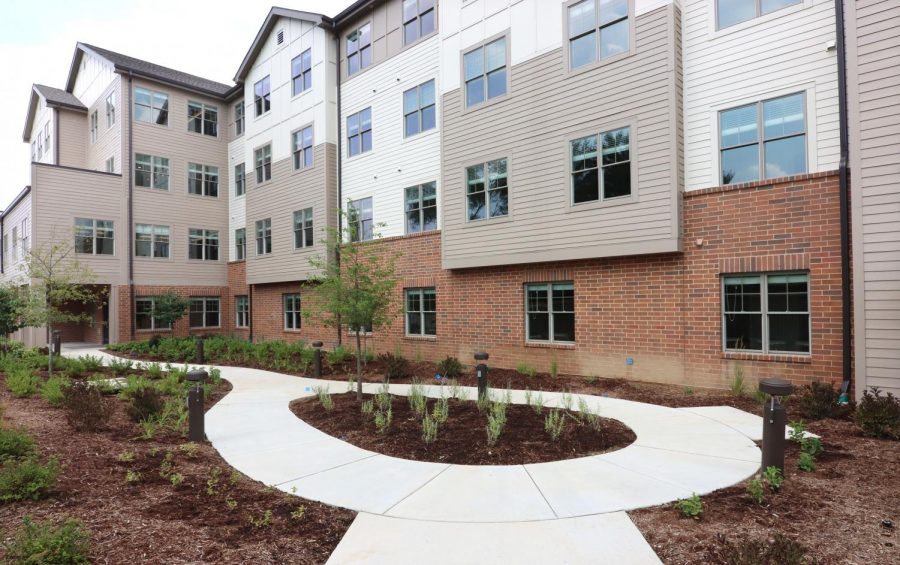With the Mehlville Fire Protection District’s tax rate reduced in 2008 for the third straight year, its Board of Directors again is discussing efforts to put a tax-decrease proposal on a future ballot.
MFPD board Chairman Aaron Hilmer said last week the board would work this year for the inclusion of tax-decrease language in state law with the help of newly hired lobbyist and former Republican state Rep. Catherine Enz of south county.
The board voted 2-0 last week to hire Enz for consulting services from January through May with the Legislature in Jefferson City.
Secretary Ed Ryan was absent from the board’s Dec. 27 meeting.
Catherine Enz Consulting will be paid $15,000, the lowest of three bids received through the fire district’s request for proposals, and could incur up to $2,000 in expenses. The district also received proposals from Citizens for Policy Reform and Don Kissel and Associates.
Although Enz’s consulting cost of $15,000 is more expensive than the district’s previous $2,000 annual cost in 2005 to the St. Louis Metro Fire District Alliance, Hilmer believes Enz’s expertise will be more productive.
“When we came in here, the district was paying $2,000 to the St. Louis area fire alliance,” Hilmer said. “And we canceled that. All I would ever see in their minutes is they would go to Dave And Buster’s. I don’t know who they were lobbying there exactly.”
Hilmer said while Enz will work to keep the board fully apprised of pending legislation that could affect the fire district, she also will assist in the effort to allow the district to place a tax-decrease proposal on a future ballot.
“I know there’s a lot of talk this year about property-tax reform,” Hilmer said. “A lot of that percolated down (in Jefferson City). I think that would tie in really well with what we tried last year with putting a tax-decrease proposal on the ballot. So I think if we could have someone down there, we could maybe attach that onto something to clarify that if the board decides to put that back on.
“… We would look to help enable the legislation for tax-decrease language in Missouri Statute 321. In talking to Cathy, there’s already several bills pre-filed for different types of property-tax reform a lot of people have sent over the second 20- to 30-percent reassessment cycle. So that’s what she’s going to do. She’s going to work with local legislators. I know Rep. Walt Bivins (R-Oakville) is going to be working hard on this issue for us and for the residents …”
The board voted Jan. 3, 2007, to place Proposition TD, or Tax Decrease, on the April 2007 ballot, but later was upended by St. Louis County Circuit Court Judge James R. Hartenbach’s Feb. 8 decision to remove the proposal from that ballot.
Before running as a write-in candidate for the district’s Board of Directors in the April 2007 election, Concord resident Dennis Skelton filed a lawsuit Feb. 7 seeking the removal of Proposition TD from the same ballot.
Skelton’s lawsuit named the county Board of Election Commissioners and the Mehlville Fire Protection District as defendants.
The passage of Proposition TD would have decreased the existing blended tax-rate ceiling in the fire district’s general fund to 43.6 cents per $100 of assessed valuation from 88.6 cents per $100 of assessed valuation.
And while the district at that time could have levied a total blended tax-rate ceiling up to $1.22 per $100 of assessed valuation, approval of the tax-decrease measure would have set that ceiling at 77.1 cents per $100 of assessed valuation.
The district’s blended tax rate for 2008 will be at 60.9 cents per $100 of assessed valuation, falling from the district’s 2007 blended level of 69.8 cents per $100 of assessed valuation.
The blended fiscal 2008 tax rate of 60.9 cents per $100 is 42.1 percent less than the legal maximum of $1.05 the board could levy and 12.8 percent less than the current rate of 69.8 cents per $100. The blended tax rate is a combination of four tax rates — residential property, commercial property, agricultural property and personal property.
The Board of Directors originally voted Aug. 21 to establish a blended fiscal 2008 tax rate of 59.6 cents per $100, but learned the next day county officials had revised the district’s total assessed valuation.
The fire protection district’s assessed valuation decreased by roughly $50.7 million — to $2.5 billion from $2.551 billion. As a result, the board conducted a second public hearing on Aug. 30 and established the revised tax rate.
The Board of Directors last week adopted the district’s 2008 final budget, which will carry a surplus of $70,241 after originally being projected in August with a deficit of $234,448.
Board members also adopted the district’s 2007 final budget, which resulted in a surplus of $1,065,467.
The originally approved 2007 budget projected a surplus of $370,749.
The 2008 budget projects $20,541,463 in total revenues and $20,471,222 in expenses.
The final 2007 budget adopted last week anticipated $20,555,062 in revenues and $19,489,595 in expenses.
Among the additions to the district’s $981,627 budgeted increase in expenses from 2007 to 2008 are $800,000 for construction of a new No. 2 firehouse at the corner of Telegraph Road and Whitshire Drive. In 2007, the district spent $40,000 for construction in progress. In 2008, the district will spend $1,309,000 in capital outlay compared to $857,000 in 2007.
Hilmer said while the 2008 budget contains a relatively “flat” surplus of $70,241, the reserves built up in previous years could cause the board to consider a “planned spend-down” of district reserves in future years by budgeting deficits and continuing to lower residents’ tax rates.
“When we came here in 2005, we started making some fiscally responsible changes,” Hilmer said. “By the end of 2005, we had adopted a final budget that showed a $726,000 surplus. For 2006, we ended up with about a $1.7 million surplus. For 2007, as I just discussed, we’re at $1.06 (million). And then this year (2008), we’re looking roughly flat.
“So I think that we maybe should envision the scenario, perhaps next year, where if you look at it as a cash basis on a calendar year, we might have a deficit. But I think you want to look at that like a planned spend-down. It’s been great to accumulate some balances because when we came in here the balances were pretty much shot. We do have a reserve. We’re not worried if the tax payments come in a little bit later.
“But I think we ought to look at, and I’ll work on this next summer, is perhaps lowering the tax rate even further to help spend down some of the reserve. Because even once we get House 2 built, we’re going to have probably a million dollars left in our capital-expenditure account,” the board chairman said.









